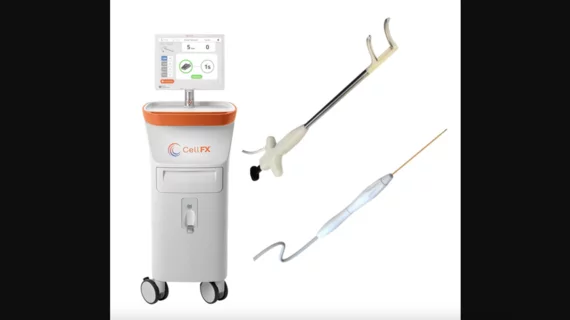FDA grants nanosecond PFA system its breakthrough device designation
Pulse Biosciences, a Florida-based healthcare technology company, has received the FDA’s breakthrough device designation for its new CellFX Nanosecond Pulsed Field Ablation (PFA) technology.
According to Pulse Biosciences, its proprietary Nanosecond PFA system was designed to treat atrial fibrillation (AFib) patients in a single application that lasts less than two seconds. Like other PFA systems, its use is associated with a reduced risk of adverse events due to its ability to destroy heart cells causing arrhythmias without the use of extreme heat or cold.
“The breakthrough device designation granted by the FDA is an exciting milestone for Pulse. It emphasizes the unique potential benefits of nanosecond PFA,” Pulse Biosciences President and CEO Burke T. Barrett said in a statement announcing the news. “We plan to fully leverage the benefits of this designation and have chosen to seek premarket approval to achieve a specific indication for the treatment of AFib. We look forward to aligning with the FDA on a pivotal clinical trial design in the near-term and towards initiating our planned first-in-human cases in the Netherlands soon.”
“The science behind nanosecond PFA was immediately compelling to me,” added Niv Ad, MD, the company’s chief science officer of cardiac surgery. “The theoretical benefits of short-duration, high-amplitude energy pulses with a nonthermal mechanism of action suggest the potential for a safer and more effective treatment. The preclinical data convinced me this technology could significantly advance the surgical treatment of AFib.”
What is the FDA’s breakthrough devices designation?
The FDA’s breakthrough devices program is designed to help medical devices make it through the approval process faster than they would otherwise. The agency’s representatives work directly with the device manufacturer, for example, and any submissions related to the device will be prioritized.
Pulsed field ablation systems making an impression in cardiology
Pulse Biosciences, which first opened its doors in 2014, is entering a crowded field of PFA technology companies. Medtronic and Boston Scientific both already gained FDA approval for their own PFA devices, for example, and Biosense Webster, a part of Johnson & Johnson MedTech, has submitted an application for its own PFA offering to join the U.S. market.
Read more about the emerging technique here.

